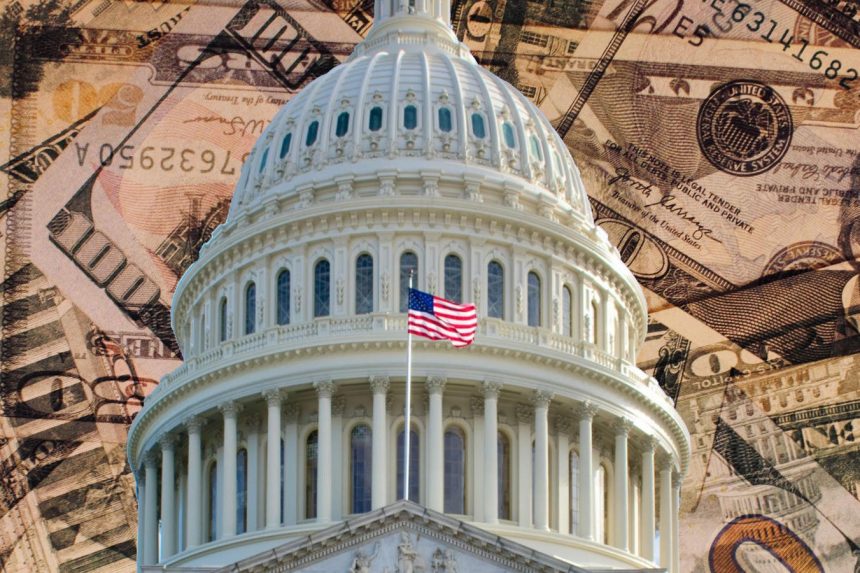One of President Joe Biden’s central student debt relief initiatives faces mounting legal challenges, even while millions of borrowers benefit.
The Saving on a Valuable Education plan is a new income-driven repayment plan that can lower monthly payments, cancel accruing interest, and accelerate student loan forgiveness. SAVE has been unveiled in phases over the course of the last eight months, with a final benefit will slash monthly payments set to go into effect in July.
But two groups of Republican-led states have filed lawsuits against the Biden administration to stop the SAVE plan. In one of those cases, a federal judge handed the Biden administration a partial victory earlier this month when it dismissed the lawsuit for eight of the 11 states that brought the challenge. But the court allowed the suit to proceed for the remaining three states — South Carolina, Texas, and Alaska. Meanwhile, an entirely separate legal challenge involving a different group of GOP-led states is ongoing, with a key ruling expected imminently.
Student Loan Forgiveness, Interest Waivers, And Lower Payments Through SAVE
Biden’s new SAVE plan, which was officially unveiled as the Covid-19 forbearance ended last fall, has a number of beneficial features. These include:
- A higher income exclusion limit than other income-driven plans, meaning less of a borrower’s income is subject to the repayment formula;
- More affordable monthly payments, particularly for undergraduate borrowers (a new formula is set to go into effect in July);
- A waiver of interest accrual that exceeds a borrower’s monthly payment amount, effectively ending runaway balance growth associated with interest accrual and capitalization;
- Student loan forgiveness in 25 years for borrowers with graduate school loans, 20 years for undergraduate borrowers, and as little as 10 years for borrowers who took out small amounts of federal student debt.
More than eight million borrowers have already enrolled in SAVE, according to the Education Department, with many expected to experience a reduction in their monthly payments when the new repayment formula kicks in next month. Meanwhile, more than 400,000 borrowers have already received student loan forgiveness under the program.
3 States Can Proceed With Challenge To Block Student Loan Forgiveness And Repayment Benefits
Earlier this month, a federal court in Kansas issued a key ruling in one of the two pending legal challenges that Republican-led states have filed to stop the SAVE plan. The states argue that Biden’s SAVE initiative amount to an under-the-radar second attempt to enact mass student loan forgiveness, and that the SAVE plan goes far beyond what Congress authorized when it passed legislation allowing for IDR plans. The Biden administration counters that the plan is fully in line with Congressional authorization, and that IDR plans have been established via that legal authority since 1994.
In the ruling, the Kansas district court dismissed the lawsuit for eight of the 11 states that had filed the challenge, concluding that these states did not have standing. “Standing” is a legal concept that in order to file a lawsuit in federal court, the challenger must be able to demonstrate that they would suffer from a concrete, specific injury that is sufficiently linked to the challenged program or policy. Speculative or generalized harms are insufficient. The court found that the states of Kansas, Alabama, Idaho, Iowa, Louisiana, Montana, Nebraska, and Utah did not provide sufficient evidence of an injury to demonstrate that they standing, because they could not link purported financial harm they alleged they would incur to the SAVE plan.
But the court found that three states — South Carolina, Texas, and Alaska — did show that they have standing. Because these states each have a state-related entity that administers or guarantees FFEL-program loans — an older type of federal student loan — they could potentially see reduced revenues as borrowers consolidate those FFEL loans into a Direct loan in order to qualify for the SAVE plan. That’s because only Direct loans are eligible for the repayment and loan forgiveness benefits of SAVE.
“Plaintiffs have shouldered their burden to show the SAVE Plan likely will reduce the revenue of South Carolina, Texas, and Alaska’s public instrumentalities,” wrote the court in its opinion.
Lawsuit To Block Student Loan Forgiveness Under SAVE Continues, With A Caveat
The victory for South Carolina, Texas, and Alaska does not mean that SAVE is now blocked. It just means that these three states have cleared the first hurdle of surviving the Biden administration’s request to dismiss their challenge. And notably, the court indicated that the states had only “barely” met their burden of proof.
Now, the litigation continues. In order to try to block the the benefits of the SAVE plan while the legal process plays out, these remaining states will likely be filing a motion for a preliminary injunction. If granted, this could block student loan forgiveness under SAVE and prevent the reduction in payments scheduled to go into effect next month. If SAVE ultimately gets struck down, millions of borrowers could see their payments increase and their interest start accruing again.
But in its recent ruling, the Kansas district court suggested that these states’ legal arguments are somewhat tenuous.
“Their standing theory is weaker than the one that prevailed in Biden v. Nebraska,” wrote the court, referencing the Supreme Court ruling that struck down Biden’s first student loan forgiveness plan. “And the allegations and declarations supporting their standing theory are conflicting. Plaintiffs even tried to sandbag their standing obligation. Their initial Complaint didn’t allege standing facts adequately.”
Key Ruling On Second Lawsuit To Block Student Loan Forgiveness Under SAVE Expected Any Day
Meanwhile, a second group of GOP-led states filed a separate legal challenge in federal court in Missouri. Those states have already filed a preliminary injunction request. Because this is an entirely separate lawsuit from the Kansas-based challenge, it gives Republican state leaders a second chance to block the student loan forgiveness and repayment benefits of the SAVE plan, even if the Kansas-based challenge — now led only by South Carolina, Texas, and Alaska — ultimately fails.
The Missouri district court judge is expected to issue his ruling for the preliminary injunction any day.
Read the full article here
















